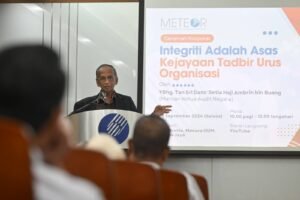The Challenge of Double Deductions

Hovid Berhad, a prominent pharmaceutical and herbal product manufacturer, found itself embroiled in a tax dispute over double deductions claimed under Sections 34A and 34B of the Income Tax Act 1967 (ITA). The deductions were tied to the company’s research and development (R&D) activities, but what appeared to be routine claims became the center of a lengthy legal battle.
For the Years of Assessment (YAs) 2006 to 2009, the company claimed double deductions under Section 34A for its own R&D activities. In YA 2010, similar deductions were sought under Section 34B for payments made to Hovid Research Sdn Bhd (HR), a company recognized as an approved research company by the Ministry of International Trade and Industry (MIDA). However, the stakes escalated when MIDA withdrew HR’s approved status in 2011, raising questions about the validity of the deductions.
The Arguments

The Director General of Inland Revenue (DGIR) challenged the deductions, arguing that:
- For Section 34A claims, annual approval was mandatory, and the taxpayer had failed to meet the requirements.
- For Section 34B, the withdrawal of HR’s approved status meant that the company had never qualified for deductions, as the status had been revoked retroactively.
The taxpayer countered that:
- Under Section 34A, approval for R&D projects was granted for ongoing projects and should cover the entire three-year period, not require annual approval.
- Under Section 34B, the withdrawal of HR’s status could not invalidate claims made when HR was an approved entity.
The Court’s Verdict

The case reached the Special Commissioners of Income Tax (SCIT) in 2019, where Hovid Berhad’s appeal was dismissed. The company then appealed to the High Court, which delivered its judgment in July 2024:
- Section 34A: The court ruled that approval certificates were valid only for the specific YA in which they were issued, rejecting the taxpayer’s argument of “legitimate expectation” due to lack of evidence.
- Section 34B: The court ruled that MIDA’s withdrawal of HR’s status effectively nullified HR’s eligibility for R&D deductions, meaning no deductions could be granted under Section 34B.
The High Court upheld the SCIT’s findings, dismissing the taxpayer’s appeal and confirming the penalties under Section 113(2) of the ITA.
The Lesson Learned

This case highlights a critical principle for taxpayers: compliance with statutory requirements is essential when claiming tax benefits. For R&D deductions, the following must be observed:
- Obtain and Maintain Valid Approvals: Ensure that all necessary annual approvals are obtained and not rely on informal assurances.
- Document Status Reliably: If relying on third-party status for deductions, ensure clear documentation and be vigilant about any changes that could impact eligibility.
For companies engaged in R&D activities, this case serves as a cautionary tale about the importance of understanding statutory obligations. Misunderstanding these requirements or relying on informal assurances can lead to significant financial and reputational consequences.






